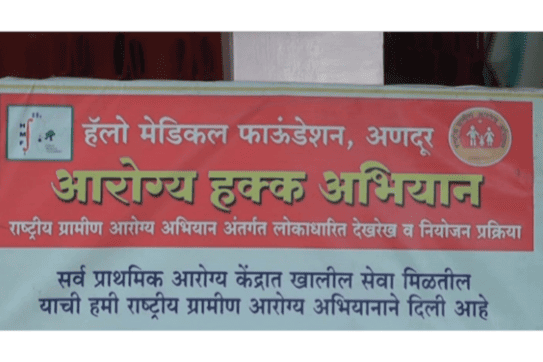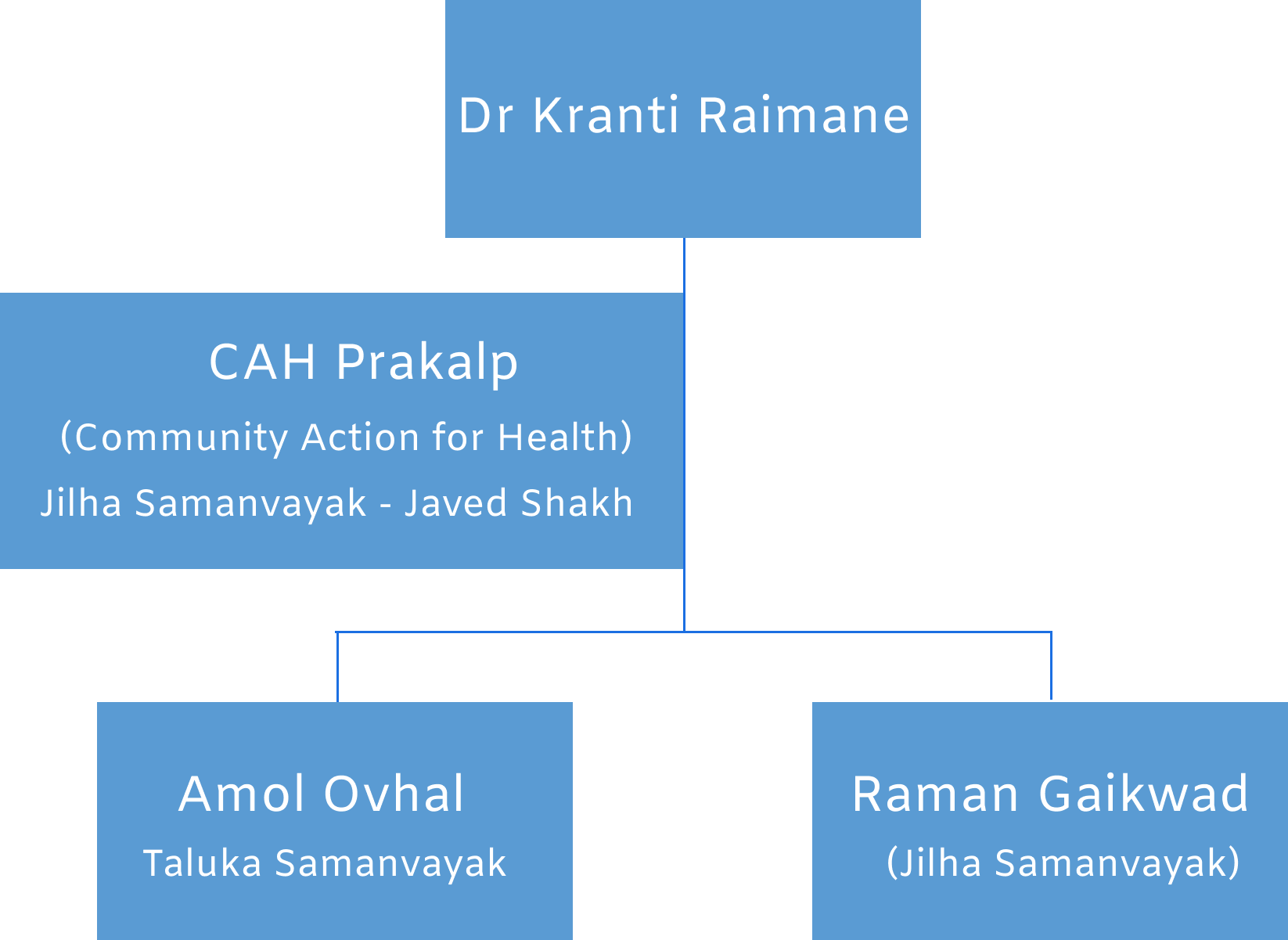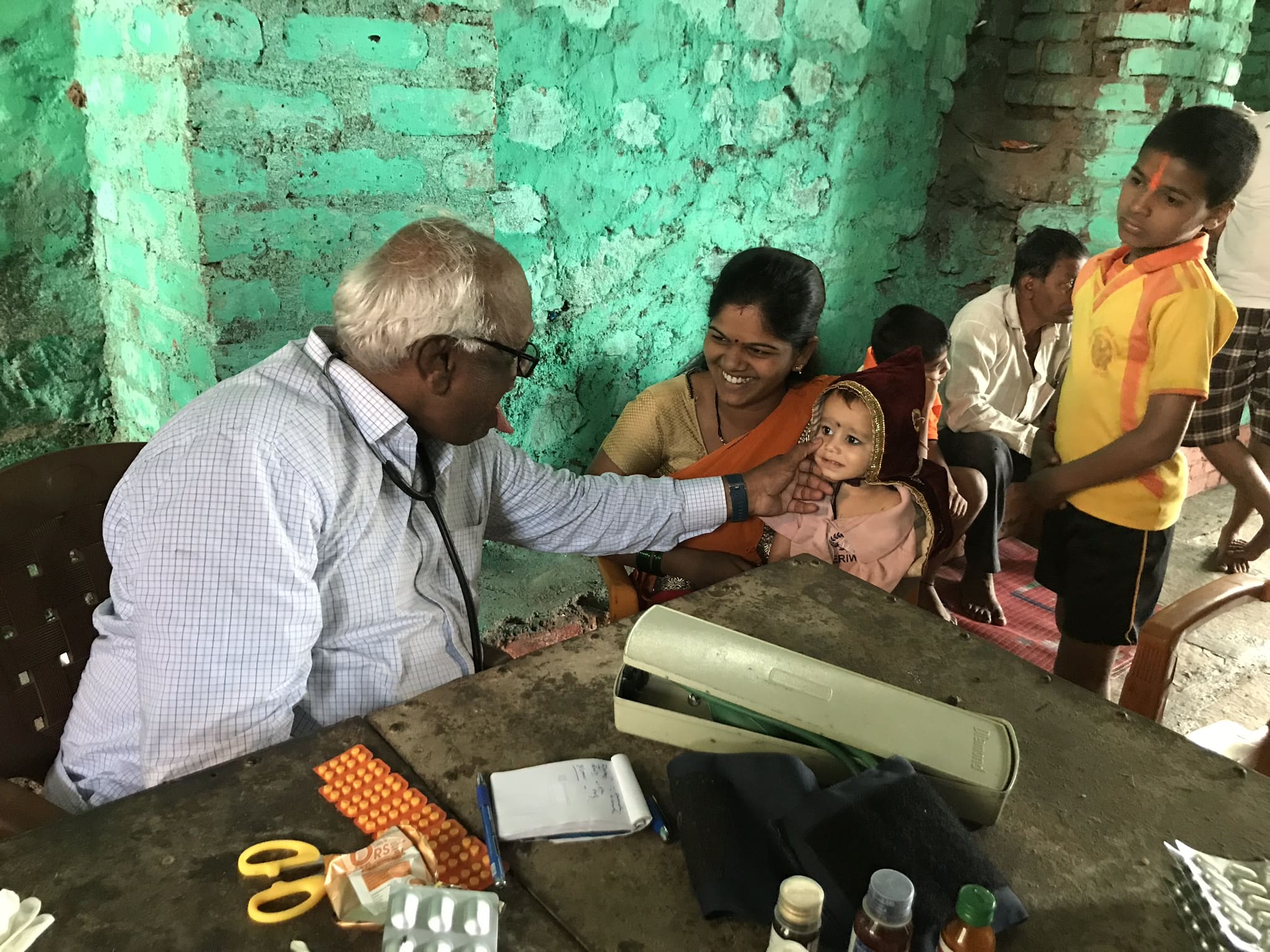An initiative for creating an empowered society that believes in people’s leadership to seek quality and accessible public health services and governance accountability, using a people-centric approach. It involves monitoring health services and planning through public participation.
About the ‘Community Action for Health’initiative (CAH)
It is a flagship initiative of HMF that commenced way back in August 2007. ‘Community-Based Health Monitoring’ (CBHM), renamed in the year 2020-21 as ‘Community Action for Health’ (CAH), was introduced as a crucial element of the Government’s National Rural Health Mission (NRHM).
It uses a people-centric approach to provide equitable, affordable, and quality health care to the rural population, especially vulnerable groups. It prioritizes community involvement in monitoring health resources and enables direct dialogue between residents and health officials.
State and district-level monitoring, planning, and steering committees have been established under NRHM, that monitor access to and delivery of quality public health services and funds utilization. A representative of HMF is part of the district and block level committees who plays a key role in influencing the monitoring and planning of service delivery as well as fund utilization processes in the Dharashiv (previously Osmanabad) district of Maharashtra State.
HMF mobilises the formation of village-level community-based monitoring committees. It helps resolve the problems/problems faced by the public in getting health services as well as the problems faced by service providers in delivering health services with the involvement of the committees and also follow-up at the government level.

Empowering Communities, Ensuring Accountability: Redefining Public Health
Focus areas:
Addresses four major social determinants of health: nutrition, safe drinking water, environmental hygiene, and access to quality public health services
Activities:
Village-level intervention
1. Form a CAH monitoring committee
2. Train the committee members.
3. Conduct monthly meetings
4. Inform the community about various NRHM schemes
5. Register cases where the Primary Health Centre refuses to provide healthcare
6. Conduct public hearings to discuss government health services and hold PHCs accountable for their work.
Training workshops for members of various committees such as the public health committees (Jan Arogya Samiti), Village Health, Sanitation and Nutrition Committees (VHSNCs), and others, that are associated with primary healthcare centres (PHCs) and its sub-centres in the Dharashiv (Osmanabad) district and its Dharashiv, Tuljapur and Akkalkot blocks in collaboration with Maharashtra Government Health Services.
Participate in CAH program planning in collaboration with Block and District Health Officers.
Collect data about grants received by PHCs and their usage in Dharashiv (Osmanabad) District.
Promote the dissemination of government health schemes in the villages through village level meetings.
Family adoption scheme for students of medical college in which students adopted families for assisting them and following up regarding health care.
Help resolve problems faced by the public in getting health services, including follow-ups with concerned government officials/ departments.
Plan and monitor utilization of funds – for delivery of quality health services, repairs and maintenance of PHCs at subcentre level, patient welfare fund
Conducting public hearings and social audits of local funds.
Testimony of Mr. Javed Sheikh, who represents HMF as a Coordinator on the district-level CAH Monitoring Committee, on how he has been able to resolve issues in the healthcare delivery system
Under the Maharashtra Government’s Rural Health Mission, ASHAs (Accredited Social Health Activists, the honorary village health workers) were mandated to accompany women with complicated pregnancies to district hospitals and be with them until delivery, regardless of the time of the day, to be eligible for their honorarium for performing this task. Recognizing safety concerns, I advocated for a policy change, citing specific examples. This advocacy led to a successful reform: ASHAs are no longer required to remain with women until delivery to receive compensation for their services.
Reach:
50 villages of Dharashiv (previously Osmanabad)Block in collaboration with Maharashtra Government Health Services that include10 PHCs, 1 village government hospital and 1 women’s hospital
ADMINISTRATIVE SETUP: THE IMPLEMENTING TEAM

